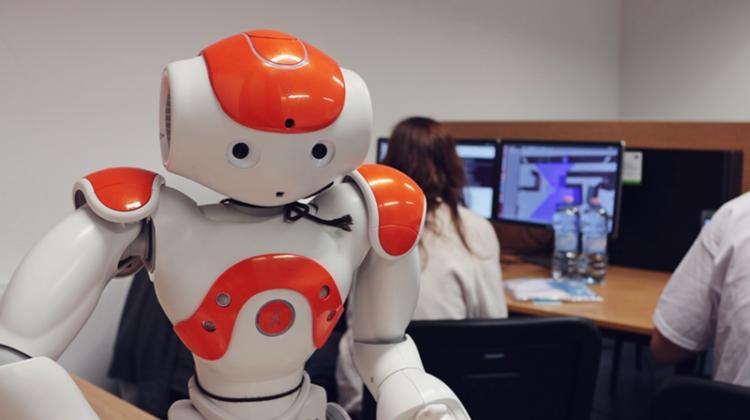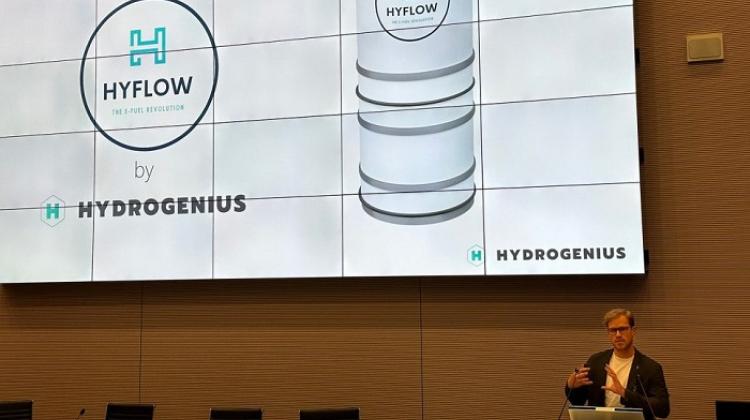Even a small robot can make life easier for the elderly and disabled

Even a small robot could make life easier for the elderly and disabled. Engineers from the Warsaw University of Technology have an idea how to reconcile user\'s endless needs with limited operating capabilities of a robot.
Small robots with considerable functionality are already available on the market. Technically, they would be capable of bringing a cup of tea, checking whether the tap in the bathroom is closed or even give grey cells a workout by asking questions or puzzles. But there is a problem - the computers in these robots are so small and slow that they cannot store the information about how to do so many different tasks. Cloud computing may be helpful.
Ensuring maximum functionality of a small robot, the possibilities of which are, however, very limited, is the objective of researchers from the Faculty of Electronics and Information Technology, Warsaw University of Technology, in the project RAPP (Robotic Applications for Delivering Smart User Empowering Applications). The team led by Prof. Cezary Zieliński carried out the project under the EU\'s FP7, together with partners from abroad: Greece, Spain, France and the UK. Information about the project has been published on the Warsaw University of Technology website.
The objective of the project was to create a software platform that would support the creation of applications for more versatile and functional robots. With a better understanding of the intentions of the owner, these robots would be able to better assist the elderly and disabled.
The project uses commercially available robots: relatively cheap, small, those that the user would not be afraid of. These robots may differ, because the needs of their users are different. For example, a person with mobility problems will need a robot performing a role of a supporting walker. On the other hand, a person who has memory problems needs an efficiently moving robot that will finds lost objects. The robot\'s appearance had no significance in the project. "Our task was to find a solution that would reconcile the limited hardware resources >on board< a small robot with unlimited human needs" - explained Prof. Cezary Zieliński.
Engineers from the Warsaw University of Technology have created software that will allow such electronic helpers to work with people. Cezary Zieliński explained that a person would be able to verbally address a robot and give it the task (for example "Check if the door is closed"). The robot will sends a request to computing cloud. There - on powerful servers - appropriate software for a given situation is selected. It will be sent to the robot, the robot will install and run it.
In fact it will not be the robot that will be able to perform the task, but the module on a server that has been selected for a given situation. Supplied software will begin to control the robot - a mechanical helper.
Robots with access to specially prepared software passed a series of laboratory tests. For example, one of the Greek partners tested the use of robots in contact with people with mild senile dementia. The machine\'s task was to exercise the user\'s mind, for example by asking questions about family members. A simple computer could be sufficient for this task, but communication with a robot can be much more intuitive - like communication between people. And this makes it easier for older people, who may have difficulties with using computers.
In addition, storing most of the data needed for such a robot in a cloud allows to create a user profile, where relevant information will be collected. The robot interacting with the owner will learn and save behaviour patterns, preferences and needs. Each machine, though mass produced, with time will become a personalized helper. Even if it fails, collected user information will be available for another unit.
"Because whole societies are aging, in developed countries there aren\'t enough carers of older people. This shows that social problems will be increasingly solved through technology" - concluded Prof. Zieliński.
PAP - Science and Scholarship in Poland
lt/ mrt/
tr. RL
Przed dodaniem komentarza prosimy o zapoznanie z Regulaminem forum serwisu Nauka w Polsce.


















